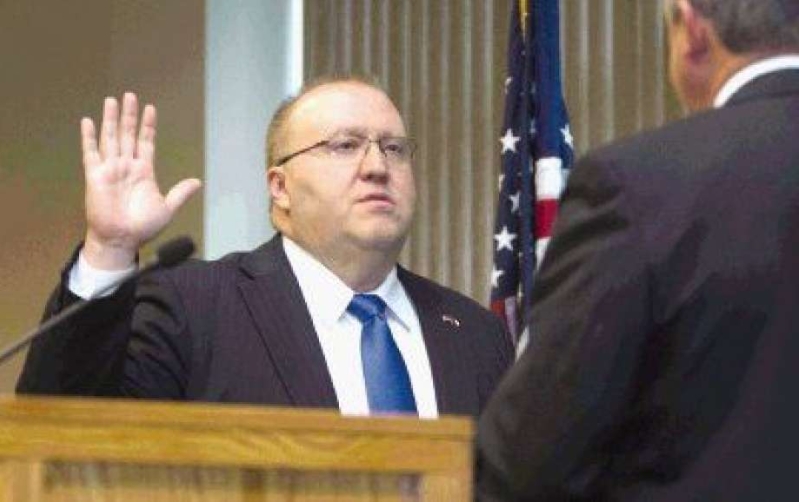
A Texas judge is being sued in federal court by three anonymous plaintiffs and Wisconsin-based Freedom From Religion Foundation, due to his courtroom tradition of having guest pastors and chaplains offer invocations before each session.
The three parties are a Christian lawyer, a lawyer who is not affiliated with any religion and an atheist, according to the Houston Chronicle. The three state in the lawsuit that the judge locks the courtroom door when the prayer begins, and then personally monitors who gets up to leave or knocks to re-enter.
The foundation's representatives, who advocate for strict separation of church and state, filed a lawsuit on Tuesday against Montgomery County Justice of the Peace Wayne Mack that states he repeatedly violated the Establishment Clause of the First Amendment to the U.S. Constitution by holding Christian prayers at the beginning of each session.
The lawsuit was filed in the U.S. District Court for the Southern District of Texas in Houston.
According to the lawsuit, Mack vowed to institute "religious values within the office" during his 2014 Republican primary campaign for his position as Justice of the Peace for Montgomery County Precinct 1. He also said he would implement a "chaplaincy program."
Mack has jurisdiction over minor misdemeanor offenses and lesser civil matters. Montgomery County is north of Houston, and its county seat is Conroe.
"Shortly after assuming the office of Justice of the Peace on May 1, 2014, Mack implemented the practice of opening each court session with a prayer delivered by a guest chaplain," the lawsuit explains.
In August 2014, one of the plaintiffs appeared in Mack's courtroom and quoted Mack as telling the crowd if they are offended by the opening prayer, "you can leave into the hallway and your case will not be affected."
"The guest chaplain then stood and read from the Christian Bible for five to eight minutes, directing the reading to those present in the courtroom," the lawsuit claims. "After the five-to eight-minute sermon, the guest chaplain asked everyone to bow their heads for a prayer. During the prayer, Judge Mack did not bow his head, but observed those in the courtroom."
The lawsuit further explains the plaintiff felt as though "the outcome of her case would be affected by how she chose to react."
First Liberty CEO and President Kelly Shackelford called Mack's prayer practice a "settled issue," reports Fox News.
"Judge Mack's program is an excellent idea and a great way to serve the community," Shackelford said in a statement shared with The Christian Post. "It has already been upheld by both The Texas State Commission on Judicial Conduct and the Texas Attorney General."
FFRF spokespeople said they 27,000-plus members, with 1,200 living in Texas, including plaintiff "Jane Noe," who has appeared before Mack on official business. The legal complaint notes: "Ms. Noe is an atheist. She does not believe in any supernatural higher power, and being subjected to religious prayer by a government official violates her sincerely held beliefs."
Plaintiff Jane Doe is a licensed attorney who has appeared before Mack on at least four separate occasions. While Doe is Christian, she "objects to a government official telling her when or how to pray."
Plaintiff John Roe, a self-employed attorney who regularly represents clients in front of Mack, "is religiously unaffiliated and objects to being subjected to religious prayers" in a courtroom.







